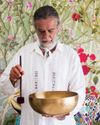CATEGORIES
Categories

AMAZON SUES STATE AGENCY TO BLOCK RELEASE OF COMPANY RECORDS TO BEZOS-OWNED WASHINGTON POST
Amazon is suing a Washington state agency to prevent the release of some company materials to The Washington Post, the newspaper which is owned by Amazon founder Jeff Bezos.

NVIDIA FACES A RECKONING AS AN UPSTART RIVAL RAISES QUESTIONS ABOUT WALL STREET'S DARLING
The superstar run for Nvidia’s stock the last few years has been astonishing. So was its tumble Monday, which caused $595 billion in wealth to vanish. That’s about as much as PepsiCo, McDonalds, Starbucks and Target are worth, combined.

Sweet Dreams
Resorts and spas are increasingly incorporating chocolate and cacao into their treatments

Atlanta
Where business flourishes in the Big Peach

JUSTICE DEPARTMENT SUES TO BLOCK $14 BILLION JUNIPER BUYOUT BY HEWLETT PACKARD ENTERPRISE
The Justice Department sued to block Hewlett Packard Enterprise's $14 billion acquisition of rival Juniper Networks on Thursday, the first attempt to stop a merger by a new Trump administration that is expected to take a softer approach to mergers.

META AGREES TO PAY $25 MILLION TO SETTLE LAWSUIT FROM TRUMP AFTER JAN. 6 SUSPENSION
Meta has agreed to pay $25 million to settle a lawsuit filed by President Donald Trump against the company after it suspended his accounts following the Jan. 6, 2021, attack on the Capitol, according to three people familiar with the matter.

LINKEDIN FOUNDER REID HOFFMAN SEES BRIGHT AI FUTURE AND HOPES HIS TECH PEERS ARE RIGHT ABOUT TRUMP
LinkedIn founder Reid Hoffman has been immersed in Silicon Valley since his August 1967 birth in Palo Alto, California, in the shadow of Stanford University, where he and fellow technology luminary Peter Thiel became friends as college students during the 1980s.

AI-ASSISTED WORKS CAN GET COPYRIGHT WITH ENOUGH HUMAN CREATIVITY, SAYS US COPYRIGHT OFFICE
Artists can copyright works they made with the help of artificial intelligence, according to a new report by the U.S. Copyright Office that could help clear the way for the use of AI tools in Hollywood, the music industry and other creative fields.

ALWAYS FIND YOUR ROCK
A major filmmaker discusses the importance of having a trusted confidant

Drinking Song
A record-themed lounge in the nation's capital seduces with smooth sounds and cocktails

Model Y
THE NEW VERSION OF THE WORLD'S BEST-SELLING CAR

DEAL IN THE SUN
Why the Caribbean is the ultimate business getaway this winter

TESLA 04 RESULTS FALL SHORT OF FORECASTS. MUSK SEES UNSUPERVISED FULL SELF-DRIVING IN TEXAS IN JUNE
Tesla's fourth-quarter adjusted profits rose slightly amid a big push to sell its electric vehicles with offers of zero financing and other incentives, but the results still fell short of Wall Street forecasts.

BIG TECH WANTS TO PLUG DATA CENTERS RIGHT INTO POWER PLANTS. UTILITIES SAY IT'S NOT FAIR
Looking for a quick fix for their fast-growing electricity diets, tech giants are increasingly looking to strike deals with power plant owners to plug in directly, avoiding a potentially longer and more expensive process of hooking into a fraying electric grid that serves everyone else.

NEW VATICAN DOCUMENT OFFERS AI GUIDELINES FROM WARFARE TO HEALTHCARE
A Vatican document released this week offers wide-ranging ethical guidelines for the application of artificial intelligence in sectors from warfare to healthcare, with an underlying call that the burgeoning technology must be used as a tool to complement, and not replace, human intelligence.

THE BENEFITS AND PITFALLS OF THIRD-PARTY TRAVEL PORTALS
How to maximize points while avoiding booking problems

DEEPSEEK'S NEW AI CHATBOT AND CHATGPT ANSWER SENSITIVE QUESTIONS ABOUT CHINA DIFFERENTLY
Chinese tech startup DeepSeek’s new artificial intelligence chatbot has sparked discussions about the competition between China and the U.S. in AI development, with many users flocking to test the rival of OpenAI’s ChatGPT.

WHAT IS DEEPSEEK, THE CHINESE AI COMPANY UPENDING THE STOCK MARKET?
A frenzy over an artificial intelligence chatbot made by Chinese tech startup DeepSeek was upending stock markets Monday and fueling debates over the economic and geopolitical competition between the U.S. and China in developing Al technology.

ARE WE ALL ALIENS? NASA'S RETURNED ASTEROID SAMPLES HOLD THE INGREDIENTS OF LIFE FROM A WATERY WORLD
Asteroid samples fetched by NASA hold not only the pristine building blocks for life but also the salty remains of an ancient water world, scientists reported this week.

GOOGLE PLEDGES TO CRACK DOWN ON FAKE REVIEWS AFTER UK WATCHDOG INVESTIGATION
Google pledged to crack down on fake online reviews with tougher punishments for rogue reviewers and businesses that try to profit from them, British regulators said following an investigation.

Broad Appeal
How pioneering Black winemakers are changing the industry—and reaching a new audience

Taste Maker
The new Capital One Landing partners with Michelin-starred chef José Andrés

GENERAL PURPOSE AI COULD LEAD TO ARRAY OF NEW RISKS, EXPERTS SAY IN REPORT AHEAD OF AI SUMMIT
Advanced artificial intelligence systems have the potential to create extreme new risks, such as fueling widespread job losses, enabling terrorism or running amok, experts said in a first-of-its-kind international report this week cataloging the range of dangers posed by the technology.

TRUMP SIGNS EXECUTIVE ORDER ON DEVELOPING ARTIFICIAL INTELLIGENCE 'FREE FROM IDEOLOGICAL BIAS'
President Donald Trump signed an executive order on artificial intelligence that will revoke past government policies his order says \"act as barriers to American AI innovation.\"

WELL WISHES
Increasingly, business travelers are looking to sustain healthy habits on the road-and airlines, destinations and employers are helping them

DREAM WEAVER
EGOT WINNER AND ENTREPRENEUR JENNIFER HUDSON ON GIVING BACK, CREATING CONNECTION AND MAKING THE BEST OF EVERY MOMENT

AS SMALL BUSINESSES FACE FIRE DEVASTATION AND TRY TO GET BACK ON THEIR FEET, A VARIETY OF AID EXISTS
The fires in California have been devastating for many small business owners and others who saw their homes, businesses or livelihoods go up in smoke.

ELON MUSK'S X PARTNERS WITH VISA ON PAYMENT SERVICE IN AN EFFORT TO BECOME AN 'EVERYTHING APP'
X is teaming up with Visa to soon offer a system for real-time payments on the social media platform — signaling some progress in a yearslong vision from billionaire owner Elon Musk to create an “everything app.”

High Cuisine on the High Seas
Sea Cloud Cruises brings fine dining to its elegant sailing experience

Keeping the Faith
Why airlines are offering personalized perks to enhance loyalty programs